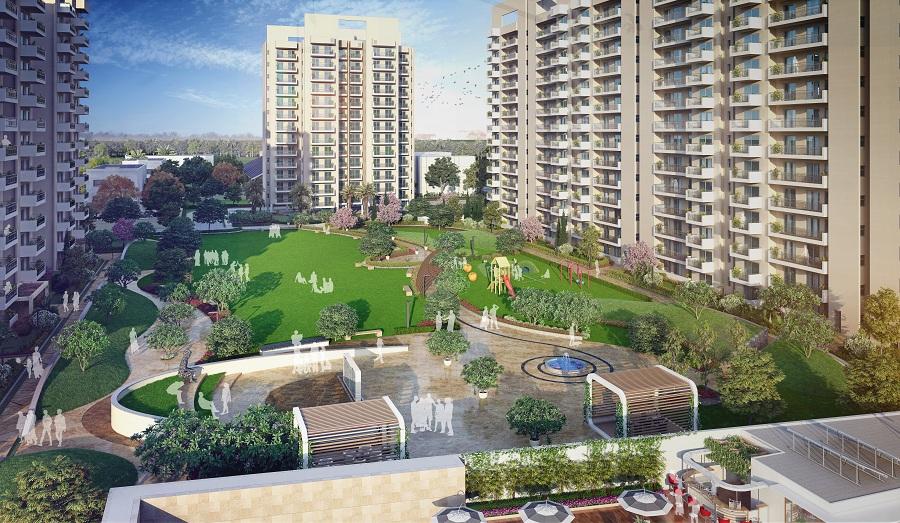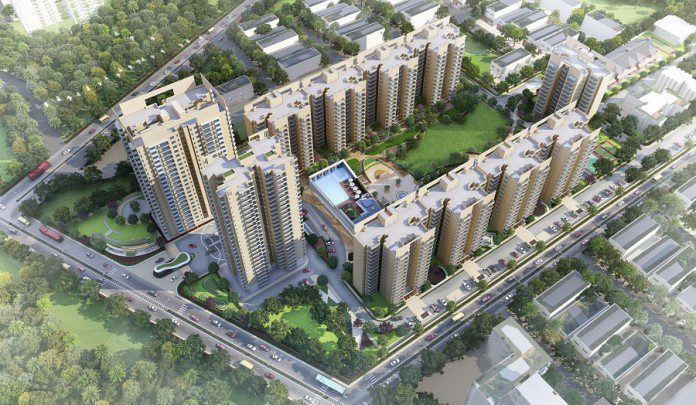Earthquake is a major issue of concern. Over 58 per cent of land in India is highly vulnerable to earthquakes and 38 cities fall under moderate to high risk seismic zones, Delhi, Chennai, Pune, Greater Mumbai, Kochi, Kolkata, Thiruvananthapuram, Patna, Ahmedabad, Dehradun are some of the cities falling in the vulnerability zone.

235 districts in various states fall in the high seismic zones IV and V.
“A large number of buildings constructed in the past have not been made earthquake resistant. Rising demand of housing and the consequent efforts for rapid supply has brought about a situation, where the requirements of safe building codes and practices have not been complied with.
Important Announcement – EasyShiksha has now started Online Internship Program “Ab India Sikhega Ghar Se”
Arguably, the most important reason for unsafe construction is the lack of implementation and enforcingof the building codes. This, in fact has been the main cause of high losses among poor and middle class households” said Ajay Khetarpal, CMD of Sunhill Homes Pvt Ltd.

In urban areas, neither the urban land use planning has not been fully successful in keeping the populace away from the sources of potential manmade and/or natural hazards nor has the urban administration fully succeeded in enforcing safe building codes and practices. Some smaller urban settlements and most of rural settlements are more about lack of enforceability of the building codes by way of non- incorporation of the safety requirements in the building bye laws of local bodies/panchayats.
The effects are multifold. Unsafe buildings increase the likelihood of injuries and damages. And loss of dwellings as well as work areas brings about major strains on individuals and sustainability of communities and cities.
The approach, therefore has to be two-fold. One in respect of yet to be constructed structures and second in respect of already constructed structures.

Firstly, the yet to be considered structures. The critical aspects in urban areas thus are not the lack of technical excellence or their individual willingness to work in accordance with the relevant earthquake safety building codes but the gaps in enforceability, non-appreciation of the provisions, resource scarcity and to certain extents exclusion from organised urban sector.
 Online Courses with Certification
Online Courses with Certification
As per official study, the housing shortage at the end of 11th Plan could be taken as 26.53 million houses for 75.01 million households. That is, more than 50% of the dwellings requirements have already been constructed. Same situation would go for the work areas. How many of these dwellings and work areas would be safe against earthquakes in anybody’s guess. The critical factors to be considered for already constructed structures are the high costs of retrofitting, environmental effects of retrofitting, availability of structures for retrofitting, alternative accommodation and other burdens on the occupants like displacement and costs.
Overall, rigorous short term and long term measures would be required by the Governments, Academia, NGOs and citizens.
Q. Are EasyShiksha's internships truly free?
Yes, all internships offered by EasyShiksha are completely free of charge.
Q. How can I apply for an internship with EasyShiksha?
You can apply by visiting our website, browsing available internships, and following the application instructions provided.
Q. What types of internships are available through EasyShiksha?
EasyShiksha offers a wide range of internships across technology, business, marketing, healthcare, and more. Opportunities are continuously updated.
Q. Will I receive a certificate upon completing an internship?
Yes, upon successful completion, you will receive a certificate recognizing your participation and achievements.
Q. Are EasyShiksha's internship certificates recognized by universities and employers?
Yes, the certificates are recognized by universities, colleges, and employers worldwide.
Q. Is the download of certificates free or paid?
Access to internships and courses is free, but there is a small fee to download certificates, covering administrative costs.
Q. When can I start the course?
You can choose any course and start immediately without delay.
Q. What are the course and session timings?
These are fully online courses. You can learn at any time and pace. We recommend following a routine, but it depends on your schedule.
Q. What will happen when my course is over?
After completion, you will have lifetime access to the course for future reference.
Q. Can I download the notes and study material?
Yes, you can access and download course materials and have lifetime access for future reference.
Q. What software/tools would be needed for the course?
All necessary software/tools will be shared during the training as needed.
Q. I’m unable to make a payment. What should I do?
Try using a different card or account. If the problem persists, email us at info@easyshiksha.com.
Q. Do I get the certificate in hard copy?
No, only a soft copy is provided, which can be downloaded and printed if required.
Q. The payment got deducted but shows “failed”. What to do?
Technical errors may cause this. The deducted amount will be returned to your account in 7-10 working days.
Q. Payment was successful but dashboard shows ‘Buy Now’?
Sometimes payment reflection is delayed. If it takes longer than 30 minutes, email info@easyshiksha.com with the payment screenshot.
Q. What is the refund policy?
If you face technical issues, you can request a refund. No refunds are issued once the certificate has been generated.
Q. Can I enroll in a single course?
Yes, select the course of interest, fill in the details, make payment, and start learning. You will also earn a certificate.
Q. My questions are not listed above. I need further help.
Contact us at info@easyshiksha.com for further assistance.
ALSO READ: Dean of law the northcap university proff pushpesh pant receives padma
Get Course: Programming with NodeJS and ExpressJS





































































